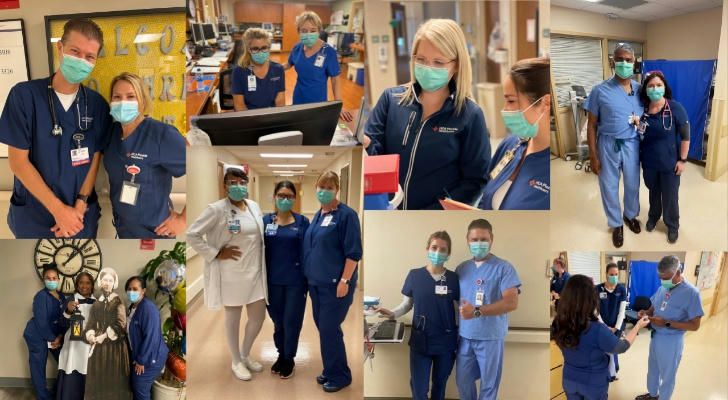Beginner's Guide to Becoming a Health Care Assistant
In a hospital, doctors are the "commanders," nurses are the "core force," and health care assistants (HCAs) are the gentle warriors on the front lines. They may not wield scalpels, but they guard patients' daily lives with smiles and skilled hands. HCAs are the warm bridge between patients and the medical system.
So, what exactly does an HCA do? What should newcomers prepare for? Are there any tips to get started smoothly? This beginner’s guide will walk you through everything in a friendly and approachable way.

1.Who Are Health Care Assistants?
If the healthcare system were a building, HCAs would be the solid foundation. They provide daily care for the elderly, the frail, or patients in recovery, helping them maintain dignity and comfort in their lives.
Common responsibilities include:
• Helping patients get up, get dressed, and tidy their beds (think of them as a real-life “life buddy”)
• Assisting with bathing, feeding, medication, and toileting (not easy tasks, but crucial)
• Measuring vital signs like blood pressure, temperature, and pulse (simple but must be accurate)
• Offering companionship and emotional support (because comfort is also a kind of treatment)
• Communicating with nurses and doctors, passing along health updates (like a “medical interpreter”)
This role may not be glamorous, but it’s full of human connection.
According to a report by the National Association of Health Care Assistants (NAHCA), over 70% of an HCA’s day is spent on direct patient care, including mobility assistance, hygiene, and emotional support. These activities play a key role in improving recovery outcomes and reducing hospital readmissions.
2.Starter Toolkit: Must-Have Skills for New HCAs

Don’t worry—becoming an HCA doesn’t require superpowers, but a few key skills will make your start much smoother:
Skill 1: Basic Health Knowledge
You don’t need to be a doctor, but knowing some health basics—like signs of low blood sugar, infection prevention, or simple first aid—can make a big difference. HCAs are often the first to detect early signs of infection, dehydration, or confusion, enabling faster intervention.
Skill 2: Communication Savvy
Talking to elderly patients can be a true art—sometimes trickier than chatting with toddlers. The golden rule? “Listen more, speak gently, and smile often.” And when talking with families or doctors, clarity is more important than quantity.
Skill 3: Keen Observation & Intuition
Notice that a patient is quieter than usual? Eating less? Moving slower? HCAs need a detective’s eye—health clues often hide in the small details.
Skill 4: Stamina & Strength
Helping patients move, pushing wheelchairs, running errands… this job is like a real-life step-counting challenge. But don’t worry—you’ll get stronger and healthier as you go!
3.Winning Hearts Through Heartfelt Care
Being a great HCA isn’t just about techniques—it’s about emotions, too. A smile or a kind word can do more than any pill.

Treat every patient like family
The best HCAs don’t “robotically” deliver services—they treat each patient as a person with feelings and dignity. Even when busy, showing patience and respect is key.
Listen, observe, and empathize
Sometimes, patients don’t need help—they just want someone to listen to their stories. Set aside the checklist occasionally and be present. That alone can heal more than we imagine.
Always lead with empathy
Ask yourself: “If I were in their shoes, how would I want to be treated?” This simple shift in mindset often leads to more compassionate care.
4.Career Growth: From Entry-Level to Professional
Being an HCA doesn’t mean you’ll stay in the same role forever. With more experience and continued learning, you can grow your career:
• Join certified training programs (like CNA or HCA courses)
• Attend community college or vocational school for healthcare training
• Move up to roles like care coordinator, senior assistant, or even transition to a licensed nurse
According to the U.S. Bureau of Labor Statistics (BLS):
• Employment of nursing assistants is projected to grow 4% from 2022 to 2032, faster than the average for all occupations.
• Median annual wage was $38,130 in 2023, with top earners above $47,000 depending on location and experience.
Many states also offer paid apprenticeships or tuition reimbursement, helping students complete certification without heavy financial burdens.
5.A Meaningful Career Full of Warmth

You don’t have to be a superhero—just someone who truly cares. The real rewards of being an HCA aren’t just found in paychecks, but in the trusting eyes of those you help each day.
If you're looking for a career that’s hands-on, heart-driven, and full of purpose, becoming a health care assistant might just be the warmest and wisest path for you.
6. Where to Start: Reliable Resources
Not sure where to begin? Here are a few trustworthy options:
• CareerOneStop: Sponsored by the U.S. Department of Labor, allows state-by-state program search
• Red Cross Nursing Assistant Training: Offers recognized CNA courses nationwide
• Local Workforce Boards or Job Centers: May offer grants, stipends, or scholarships for HCA training
Quick Recap:
• HCAs are essential caregivers offering daily support and emotional connection
• Skills like observation, stamina, and empathy are key to success
• Job growth is strong, with many affordable training paths available
• It’s hard work—but deeply fulfilling work
